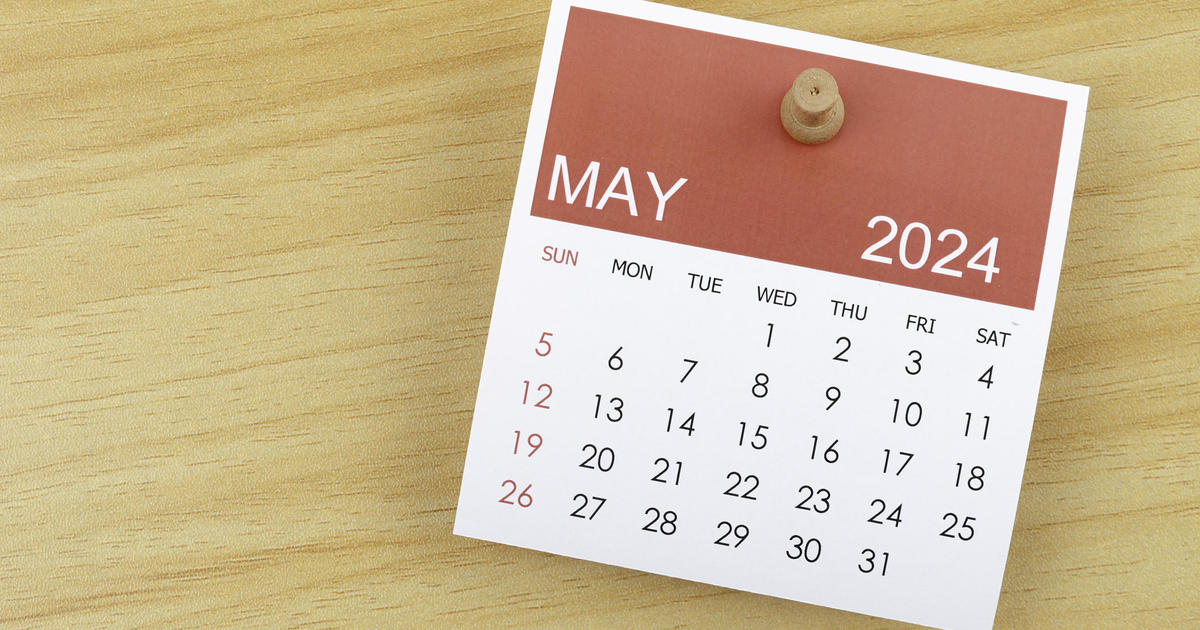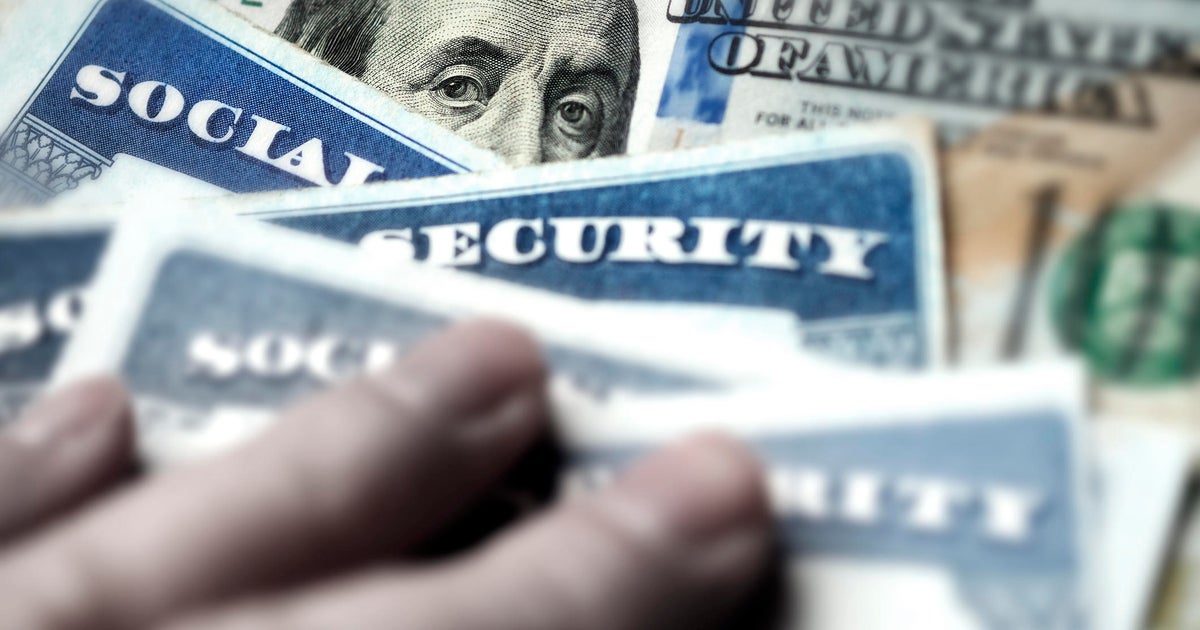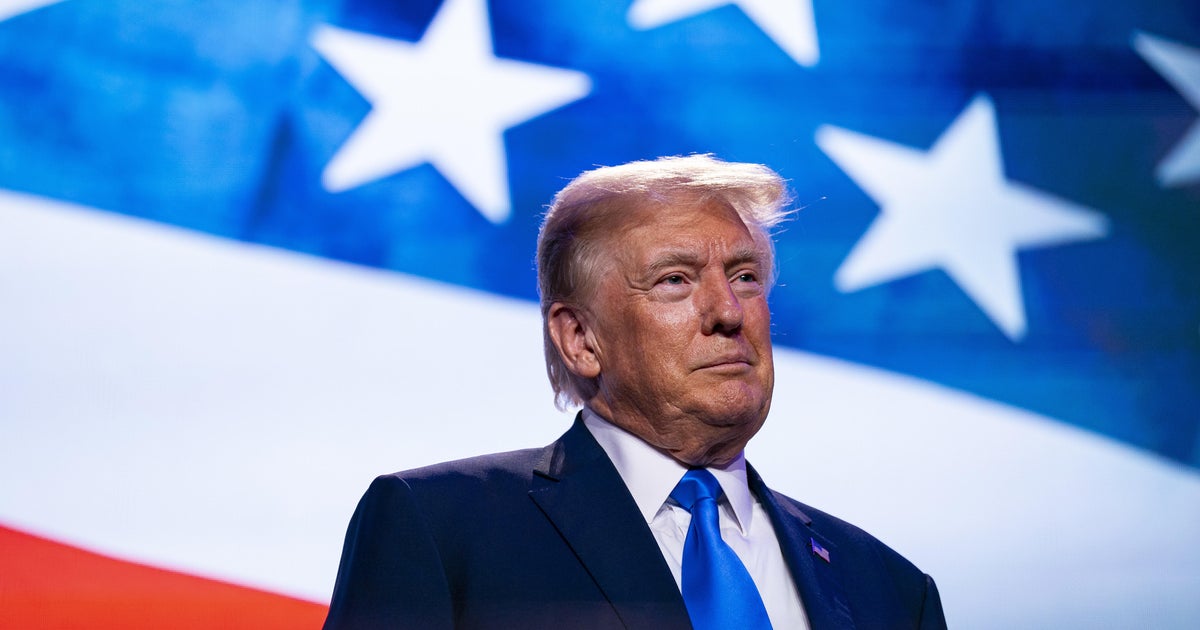ICYMI: Top takeaways from this week's "Face the Nation": Economy shows little signs of improving
Payrolls declined by 20.5 million in April, the worst month of job loss in U.S. history, according to the Bureau of Labor Statistics. The unemployment rate climbed to 14.7%, the highest since the Great Depression. Experts anticipate the unemployment rate to keep rising, as millions of Americans are still filing unemployment claims per week.
Here's the big takeaways from Sunday's episode of "Face the Nation" with Margaret Brennan
1. Hassett: Unemployment rates to skyrocket past 20%
- Jobless rate will be "towards 20 percent by next month" and then "probably trough" in May or June, White House Economic Adviser Kevin Hassett projected on "Face the Nation" this weekend. At that point, Hassett thinks unemployment rate will be "north of 20." You have to go back to the Great Depression to see these kind of rates in U.S. economic history.
- While the White House emphasized that most everybody surveyed expect to go back to work within six months, Hassett conceded that "Nobody knows it."
- What do Americans need right now: 1 in five US children are going hungry right now, according to Brookings. When asked if the Trump administration would consider increasing the amount of money available for food stamps as Democrats are urging them to do, Hassett replied that "we need to look at everything." Yet the White House has put negotiations with Congress on hold until late May or June. Hassett said that's in order to watch what happens in the states as thy "turn their economies back on." "Does the opening of the state lead to a new outbreak of the disease."
- "It's scary to go to work": "I've got a mask right here." Hasset said that he personally is practicing "aggressive social distancing" and that he wears a mask when he feels it is necessary. "It is scary to go to work," he admitted. He added, "And it's going to take awhile for things to get back to normal absolutely."
- Why that matters: While numbers continue to look dismal for the U.S. economy, Hasett's moment of unfiltered honesty emphasizes what millions of Americans are feeling as they weigh going back work, or avoid the risk to the lives by exposing themselves to COVID-19.
2. America will see a "re-imagining" of the workplace post-COVID-19
- "One way to think about this is that this one month, two months period has brought forth 10 years of forward change," Former Google CEO Eric Schmidt told "Face the Nation".
- What Schmidt said: "We're gonna have to re-imagine how the workplace works. We're going to have to figure out how to get people into buildings that they're fearful of. My guess is we'll have more demand for office space, not less, because people will want social distancing. We're going to have to think about hub-and-spoke systems where local people don't travel so far because they don't want to be in public transit for so long. So we're gonna have to really rethink how businesses operate. They need their employees back."
- Flexible arrangements needed to quell fears: "If you think of it as an employer, you have a bunch of employees, some of whom are dying to get back to the office, and some people who are afraid that if they go to the office, they will die. They're very concerned about- they're immuno-compromised or what have you. So they're going to have to come up with flexible arrangements."
- The former Google exec also called for massive federal investment in broadband access, especially for rural areas.
- What Schmidt said: "So all of a sudden, the Internet is no longer optional. It's fundamental to doing business, to operate, to live our lives, all sorts of much higher expectations as a result. For example, we need much better broadband in the rural areas. Another example will be tele-health. 80 percent of the visits to doctors are right now in tele-health. People have been wanting this to happen for years. Now using remote monitoring, we can actually measure everybody and do it remotely."
- "You can't participate in this new economy without access to the Internet. It's how you're going to learn. It's how you're going to deliver services. It's how you're going to market it. By the way, it's how you're going to sell. Right? So sales people won't be traveling as much. They're going to be doing it with the equivalent of Zoom and other services like that."
- Manufacturing will need to make a move: Schmidt noted some technology will need to move to the U.S. "We've built in the last 10 or 20 years this extraordinarily efficient global supply chain with many, many steps. We've now learned that it's not resilient. There has been for at least a decade a great concern about our over-reliance on Taiwan in particular for foreign chip manufacturing and there is an initiative within the government which is very important, that we get domestic supply of foundries…"
- Why this matters: The world is going to be vastly different for America's workforce upon re-entry. Whether changes to the physical workplace or the means in which work is performed, close attention to worker's needs is going to be a top priority for employers across the country.
3. Gottlieb: New antigen testing a "game changer:
- Former FDA Commissioner Dr. Scott Gottlieb called the FDA approval of the first antigen tested to detect COVID-19 antibodies a "game changer" for testing ability in the U.S. in part because most doctors already have the machines to process these tests in their offices. They currently use them for strep throat and flu. The CDC needs to come out with flexible guidelines on how doctors can protect their offices and protect their staff while conducting this testing.
- What Gottlieb said: "What it is it's a very rapid test that could be used in a doctor's office. Doctors now have about 40,000 of these Sofia machines already installed in their offices. And you do a simple nasal swab and the test itself scans for the antigens that the virus produces. The test is about 85 percent sensitive. So let's say a hundred people come into a doctor's office who have COVID-19, 85 of them are going to be able to be tested positive with this test very quickly. It's a cheap test. It'll probably be about five dollars a test and you can get a result within five minutes. For the other 15, the doctors are going to have to have an index of suspicion that the patient may have COVID-19 and send off one of the PCR-based tests, which take about 24 hours to get the result back. But for those 85 patients that you could screen out right away, you're getting a very fast result and you can start to take action immediately. The company itself said that they're going to be able to produce about 200,000 of these tests starting right away. But in several weeks they'll be able to produce up to 1.5 million a week. So this dramatically expands our testing capacity as long as doctors are able to run these tests in their offices.
- Rocky distribution roll-out of Remdesivir by administration provides insight on future of vaccine supply: "I think we need to get a better system in place. If the government's going to take control of the supply of these kinds of therapeutics and they don't necessarily have to do that, they chose to do that, they need to have a good system in place for allocation," Gottlieb said.
- "Here, in this case, Gilead gave a half a million doses to the federal government. They distributed initially about 4,000 in New York City, which is the city that I'm familiar with. I think they should've been trying to push out as many doses as fast as possible because more supply is coming into the market. There's no reason to hoard it or hold onto it. And so hopefully when they start to contemplate the next therapeutic and there will be more therapeutics in the fall or a vaccine and how they allocate that, they're going to have a better system in place based on clinical need."
- Why that matters: The FDA's approval testing that can be administered in doctors' offices could be key in stopping the spread of the coronavirus pandemic worldwide.
4. Murray: Death rate projections are rising due to an "explosive increase in mobility"
- One of the leading models for measuring the impact of the coronavirus is now projecting a total of 137,184 cumulative COVID-19 deaths in the U.S. through the beginning of August, an increase of roughly 2,700 deaths from its previous forecast May 4. Dr. Christopher Murray, the director of the Institute for Health Metrics and Evaluation at the University of Washington, predicted the number of cases to particularly increase in areas where people become more mobile.
- What Murray said: "So our projections through till August 4th are up. We're up to 137,000 deaths that we expect to see and that's the effect of two things going in opposite directions. Some good-ish news coming out of New York and New Jersey and Michigan, where the death cases and death numbers are- are coming down faster than expected. Some other states where cases and deaths are going up more than we expected, Illinois and then Arizona, Florida, California as examples of that. And so it's the balancing of those that is driving our numbers. And then, of course, we're seeing just explosive increases in mobility in a number of states that we expect will translate into more cases and deaths, you know, in 10 days from now."
- What are the new hotspots? "Some of those have had modest epidemics so far. So they may not be huge numbers. But, you know, the top five in terms of increasing mobility are Montana, North Dakota, South Dakota, Minnesota and Georgia. But there's another 10 states or more where there's been a 10 to 15 percentage point increase of mobility. So pretty- pretty diverse. So we may see quite a lot of states tipping towards increasing cases in the next two weeks."
- Why this all matters: As several states are preparing to partially or fully reopen their economies, it could lead to greater travel between states and risk of re-infection and a rise in COVID cases. Murray advised against significant travel, and urged Americans to try to "minimize exposure" to other people.
5. What needs to happen before students return to college?
- The fall semester is going to be looking very different this academic year, so says University of Virginia's President Jim Ryan.
- How will students return to campus? "One is testing capacity. I think we would need to test students when they first arrive and faculty and staff before the students arrive. We're going to need to have the ability to do contact tracing. We're going to need the ability to be able to isolate and quarantine students who have been exposed. And then we're also going to need to enact a bunch of social distancing protocols in terms of how far away students need to be from each other in the classroom or in dining halls. As you can imagine, it's a- it's a complicated task. College campuses are a difficult and challenging place for contagious viruses."
- Will all public universities coordinate? "So, we are in contact with the Department of Education, and I'm also in close contact with my colleagues at Virginia colleges and universities, and we are all trying to work against the same challenge. And my hope is that there will be a set of guidelines that we can all agree to and all follow. But not all of us are in the same situation as well."
- Will there be sports? "Our hope, obviously, is that there's a football season this fall. I don't imagine it will look like normal football seasons, just like I don't imagine even if we have all students back on grounds, it will look like a normal semester. It will not be a normal semester next fall, regardless of which path we follow."
- Why this matters: Much is uncertain for the world of academia as students worldwide are forced to turn their homes into the classroom. But universities and colleges may have to adapt to a changing post-Coronvairus world to provide a safe environment for higher learning.
Missed Sunday's episode? Click here to watch the show. "Face the Nation" airs Sunday mornings on CBS. Click here for local listings.




